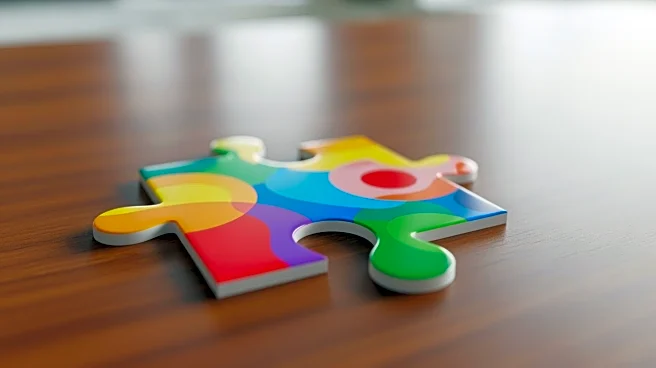What is the story about?
What's Happening?
Social anxiety, affecting approximately 15 million American adults, is a prevalent condition characterized by intense fear of social interactions. Individuals with social anxiety often exhibit behaviors such as worrying excessively, acting aloof, canceling plans last minute, struggling with conversation, projecting false confidence, preferring intimate gatherings, and drinking excessively to cope. Experts like Julie Pike, Ph.D., emphasize that these behaviors are not personal but rather manifestations of the individual's anxiety. The condition can lead to a continuous feedback loop where anxious individuals replay social interactions, exacerbating their fears. Despite appearing aloof or uninterested, socially anxious individuals are often deeply concerned about forming relationships and fear judgment from others.
Why It's Important?
Understanding social anxiety is crucial for fostering empathy and support for those affected. The condition can significantly impact personal relationships and social functioning, leading to isolation and decreased quality of life. Recognizing the signs of social anxiety can help friends and family provide appropriate support, encouraging affected individuals to face their fears and gradually overcome anxiety. This understanding can also inform public health strategies and mental health services, ensuring that socially anxious individuals receive the necessary resources and interventions to manage their condition effectively.
What's Next?
For individuals with social anxiety, gradual exposure to social situations, combined with supportive encouragement from friends and family, can be beneficial. Mental health professionals may continue to explore therapeutic approaches, such as cognitive behavioral therapy, to help individuals manage their anxiety. Public awareness campaigns could also play a role in reducing stigma and promoting understanding of social anxiety, encouraging affected individuals to seek help and engage in social activities without fear of judgment.
Beyond the Headlines
Social anxiety raises important ethical considerations regarding societal expectations and pressures related to social interactions. The condition challenges the cultural norm that values extroversion and sociability, prompting a reevaluation of how society perceives and accommodates different personality types. Long-term, increased awareness and acceptance of social anxiety could lead to more inclusive environments that respect individual differences in social comfort levels.

















